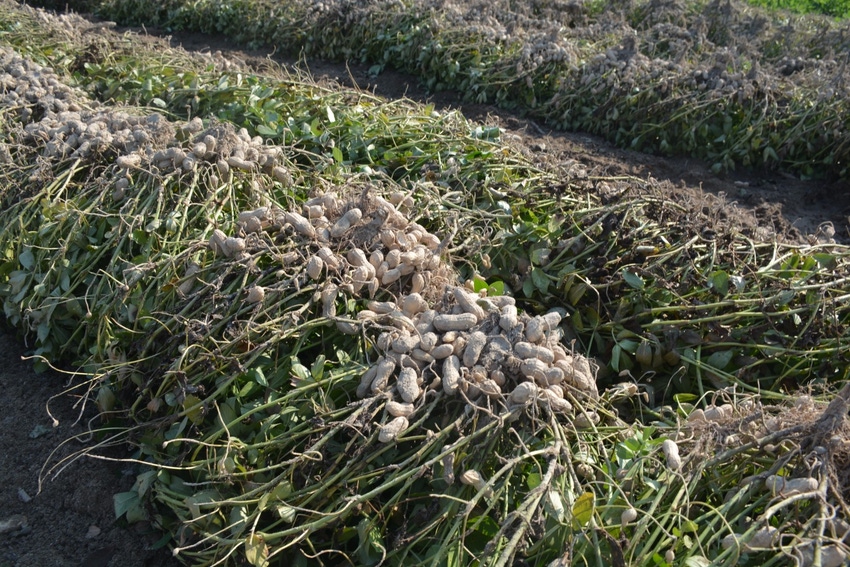
You need to look no further than Lorsban to see the challenges facing pesticide registration and use. Warning bells are sounding that the registration for chlorpyrifos, the active ingredient in Lorsban, will face the tough evaluation process that all products undergo as early as next year.
Dr. Rick Brandenburg, North Carolina State University Extension entomologist, discussed the situation at the Southeastern North Carolina Peanut Field Day Sept. 10 at the Border Belt Tobacco Research Station in Whiteville. Dr. David Jordan, North Carolina State’s Extension peanut specialist, also expressed concern at the Peanut Variety Quality Evaluation (PVQE) Tour at Taylor Slade’s farm in Williamston two days later on Sept 12.
“My biggest concern is, and I’m going to speculate and say that in 2020, Lorsban will face a tough uphill battle and eventually we could lose this valuable product,” Brandenburg said at the field day. “Like many older products, it’s receiving some negative publicity and that could cause us some real marketing problems down the road. Despite years of research, we don’t have anything to replace Lorsban as it’s our only option for the control of a number of soil insects that feed directly on the developing pod. Nothing.”
Brandenburg noted that Thimet used to be a replacement, but when Thimet went through re-registration, it was only approved for use at planting. It cannot be used mid-season. Brandenburg says this puts peanut producers in a bind because there are no other options, although work continues on finding alternatives to Lorsban.
At the PVQE tour, Jordan said Lorsban is used on roughly 25 percent of North Carolina’s peanut acreage for Southern corn rootworm control. It is used primarily on irrigated ground and heavier ground. Lorsban is the only product now available to control rootworm.
Jordan shares Brandenburg’s concern that the Lorsban registration will be gone before we have effective replacement options.
“There is a good chance that registration is going to eventually be cancelled. Just reading the tea leaves, that seems to be the case. The big question is will folks be able to use up the stocks they have, or will there be some kind of big collection of remaining stocks?”
Activist groups want Lorsban banned and have been unrelenting to end its use. Environmental groups, including the Pesticide Action Network North America and Natural Resources Defense Council, claim Lorsban or chlorpyrifos causes brain damage in children and its use must be stopped.
On July 18, EPA announced it had rejected a petition from environmental groups to ban Lorsban. EPA reviewed the petition from the groups and determined the scientific evidence isn’t strong enough to justify banning Lorsban. But the battle is far from over.
State attorneys general in Oregon, New York, California, Washington, Massachusetts, Maryland and Vermont filed a lawsuit against the EPA in the 9th Circuit Court of Appeals Aug. 7 seeking a ban of chlorpyrifos. The lawsuit is in response to the EPA decision allowing for the continued registration of Lorsban.
The lawsuit alleges that the July EPA ruling violated the Federal Food, Drug and Cosmetic Act because the pesticide has been proven harmful to children.
Lorsban is up for EPA re-registration in 2022. Jordan, Brandenburg and others fear lawsuits will halt its use before then, as early as next year. Environmental groups aren’t expected to give up their battle to stop the use of Lorsban.
Time will tell, but peanut farmers need to prepare for the reality that in years to come, they may not be able to use Lorsban to control Southern corn rootworm and other damaging soil insect pests
About the Author(s)
You May Also Like






